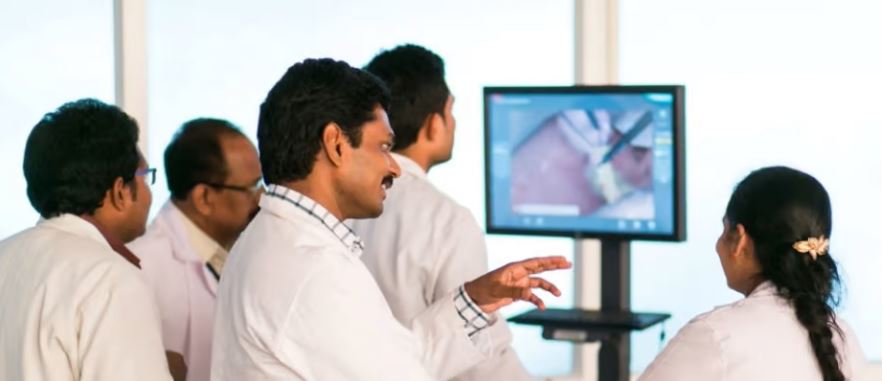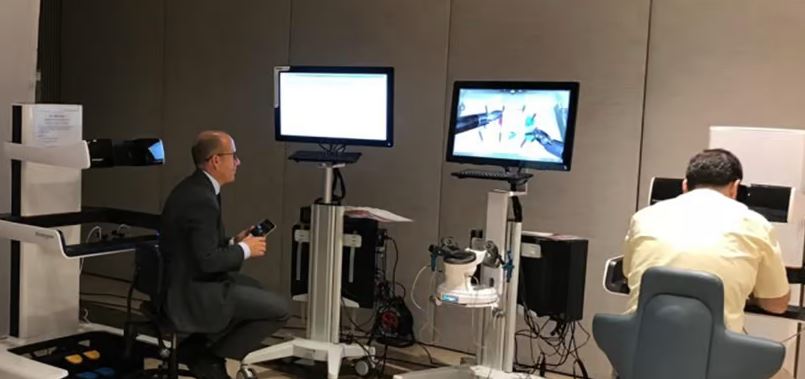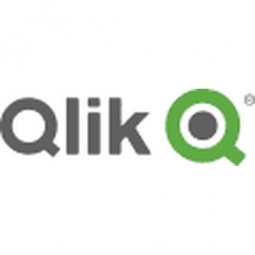Download PDF
Laureate Education Asia Uses QlikView to Cut Analysis Time from Seven Hours to 20 Minutes
Technology Category
- Application Infrastructure & Middleware - Data Visualization
- Analytics & Modeling - Big Data Analytics
Applicable Industries
- Education
Applicable Functions
- Sales & Marketing
Services
- Data Science Services
The Challenge
Laureate Education Asia, a part of the Laureate International Universities network, was facing challenges in financial forecasting and reporting. The process of preparing monthly analysis and reporting at their regional office was time-consuming, taking up to seven hours to run a comparison of financial performance of their different institutions from Oracle Hyperion. They wanted to reduce this time and improve the quality of their reporting. They also wanted to enable their staff to archive their own data and extract forecasts on a self-service basis for quicker decision-making.
About The Customer
Laureate Education Asia, based in Selangor, Malaysia, is part of the Laureate International Universities (LIU), a leading international network of quality, innovative higher education institutions. The LIU network has more than 65 accredited campus-based and online universities offering undergraduate and graduate degree programs to around 675,000 students worldwide. These students are part of an international academic community that spans 29 countries throughout Asia Pacific, Europe, Latin America, the Middle East, North Africa, and North America. LIU institutions offer hundreds of career-focused, undergraduate, master’s, and doctoral degree programs in fields including architecture, education, engineering, hospitality, IT, law, and medicine.
The Solution
Laureate Education Asia deployed QlikView for its five-strong finance team to analyze the performance of its 10 member institutions in the Asia Pacific region. They reused QlikView applications that had been pioneered by Laureate Education Chile in Latin America, making the implementation highly cost-effective. The implementation was assisted by QlikTech Partner Analytical Intelligence Solutions to cater for their regional needs. QlikView is now giving the team an aggregated and comprehensive view of information about Asia Pacific operations, including financial health, sales performance, and data on enrollment of students.
Operational Impact
Quantitative Benefit
Related Case Studies.

Case Study
IoT platform Enables Safety Solutions for U.S. School Districts
Designed to alert drivers when schoolchildren are present, especially in low-visibility conditions, school-zone flasher signals are typically updated manually at each school. The switching is based on the school calendar and manually changed when an unexpected early dismissal occurs, as in the case of a weather-event altering the normal schedule. The process to reprogram the flashers requires a significant effort by school district personnel to implement due to the large number of warning flashers installed across an entire school district.

Case Study
Revolutionizing Medical Training in India: GSL Smart Lab and the LAP Mentor
The GSL SMART Lab, a collective effort of the GSL College of Medicine and the GSL College of Nursing and Health Science, was facing a challenge in providing superior training to healthcare professionals. As clinical medicine was becoming more focused on patient safety and quality of care, the need for medical simulation to bridge the educational gap between the classroom and the clinical environment was becoming increasingly apparent. Dr. Sandeep Ganni, the director of the GSL SMART Lab, envisioned a world-class surgical and medical training center where physicians and healthcare professionals could learn skills through simulation training. He was looking for different simulators for different specialties to provide both basic and advanced simulation training. For laparoscopic surgery, he was interested in a high fidelity simulator that could provide basic surgical and suturing skills training for international accreditation as well as specific hands-on training in complex laparoscopic procedures for practicing physicians in India.

Case Study
Implementing Robotic Surgery Training Simulator for Enhanced Surgical Proficiency
Fundacio Puigvert, a leading European medical center specializing in Urology, Nephrology, and Andrology, faced a significant challenge in training its surgical residents. The institution recognized the need for a more standardized and comprehensive training curriculum, particularly in the area of robotic surgery. The challenge was underscored by two independent studies showing that less than 5% of residents in Italian and German residency programs could perform major or complex procedures by the end of their residency. The institution sought to establish a virtual reality simulation lab that would include endourological, laparoscopic, and robotic platforms. However, they needed a simulator that could replicate both the hardware and software of the robotic Da Vinci console used in the operating room, without being connected to the actual physical console. They also required a system that could provide both basic and advanced simulation training, and a metrics system to assess the proficiency of the trainees before they performed surgical procedures in the operating theater.

Case Study
Edinburgh Napier University streamlines long-distance learning with Cisco WebEX
• Geographically dispersed campus made in-person meetings costly and inconvenient.• Distance-learning programs in Malaysia, India, and China required dependable, user-friendly online tools to maximize interaction in collaborative workspaces.• Virtual learning environment required a separate sign-in process, resulting in a significant administrative burden for IT staff and limited adoption of collaboration technology.

Case Study
8x increased productivity with VKS
Before VKS, a teacher would spend a lot of time showing a group of 22 students how to build a set of stairs within a semester of 120 hours. Along with not leaving the teacher much time to provide one-on-one support for each student to properly learn carpentry, it also left a considerable amount of room for error. Key information would be misinterpreted or lost as the class was taught in the typical show-and-tell way.

Case Study
Scalable IoT Empowering GreenFlex's Sustainable Growth
GreenFlex, a company that supports sustainable development, decarbonization, and energy efficiency, faced several challenges in its quest to expand its business. The company needed to deploy a robust and sustainable IoT technology to support its growth. It was crucial for them to monitor and control devices at customer sites in a safe and reliable manner. They also needed to integrate devices across a range of communication protocols and gather and act on data to meet efficiency targets. GreenFlex had previously built IoT capabilities into its digital platform, GreenFlexIQ, to monitor and manage customer sites remotely. However, they soon realized that they needed a new platform to support their ambitions. They needed a platform that could scale to connect more devices for production management and make it easier for the operations team to manage devices in the field.





